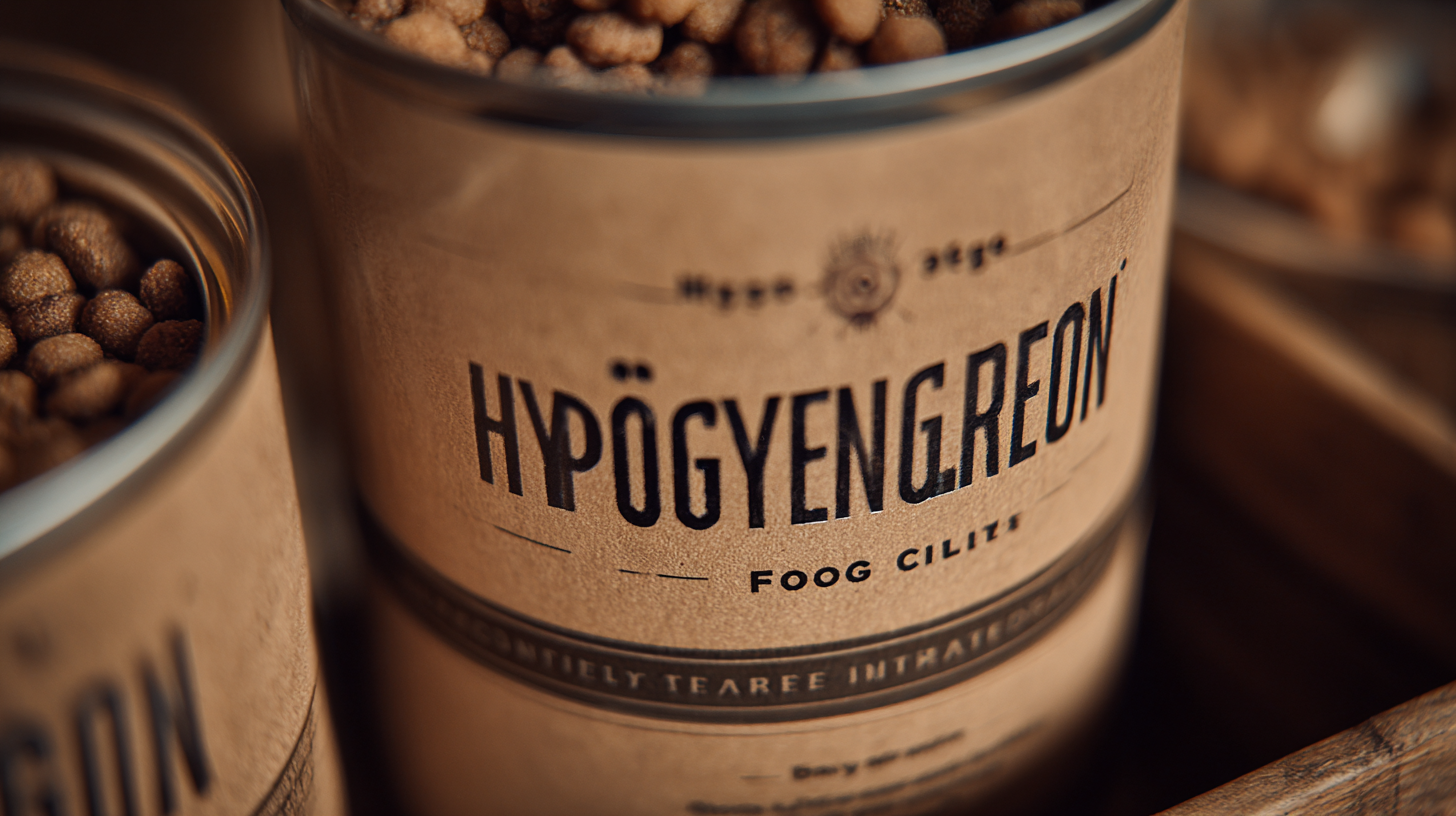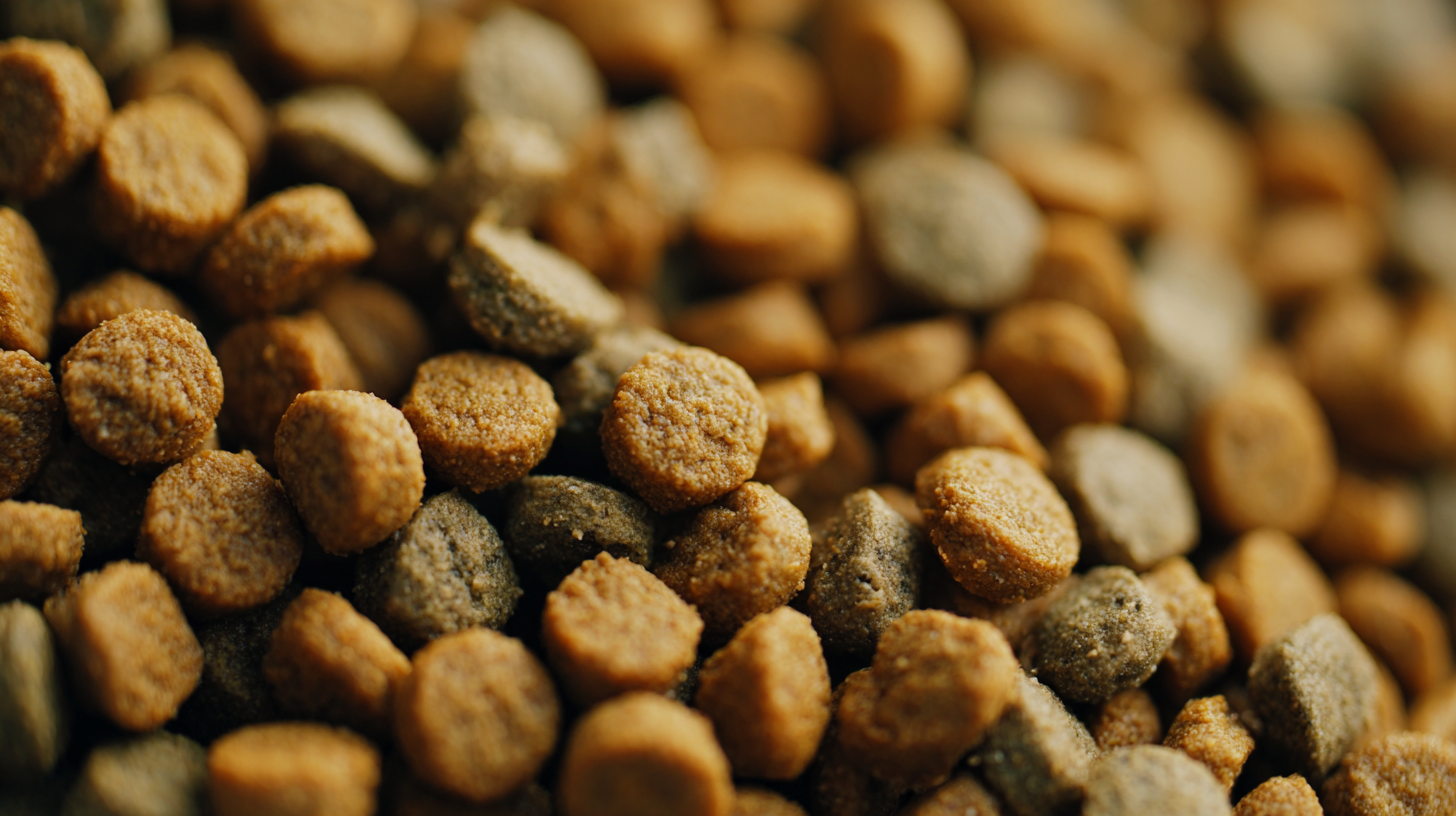As pet owners increasingly prioritize their furry companions' health and well-being, the demand for high-quality, specialized nutrition options continues to grow. According to the Pet Food Industry report, the global pet food market is projected to reach $132 billion by 2025, with a significant surge in the hypoallergenic segment driven by rising awareness of food allergies in dogs. In particular, "Hypoallergenic Wet Dog Food" has emerged as a viable solution for dogs suffering from sensitivities, offering palatable and digestible alternatives that cater to their unique dietary needs. As we navigate the trends shaping pet nutrition in 2025, understanding the benefits and choices available in hypoallergenic wet dog food will be crucial for owners seeking to provide the best for their pets. This blog will explore some exemplary options, helping pet lovers make informed decisions in this evolving landscape.

The demand for hypoallergenic wet dog foods has surged globally, reflecting a growing awareness among pet owners about their pets' dietary sensitivities. According to a recent market analysis by Fortune Business Insights, the global pet food market is projected to reach $98 billion by 2025, with hypoallergenic products becoming a significant segment of this growth. Such foods are specifically designed to minimize allergic reactions, which are increasingly prevalent in dogs, affecting an estimated 10% of the canine population.
To choose the best hypoallergenic wet dog food, pet owners should look for high-quality protein sources and grain-free formulations. Ingredients like sweet potatoes, peas, and specific meats such as venison or duck are popular choices that cater to dogs with food intolerances. Additionally, it’s essential to read product labels carefully to avoid common allergens such as wheat, soy, and dairy.
**Tip:** Consider starting with a limited ingredient diet to identify any potential allergens. This approach can help narrow down the best food options suited to your dog’s specific health needs.
Another rising trend in the market is the incorporation of functional ingredients, such as omega fatty acids and probiotics, which not only support overall health but also aid in maintaining a healthy skin barrier and gut microbiome. Pet owners should strive to select products enriched with these beneficial additives to enhance their dog's health while navigating the complexities of food sensitivities.
**Tip:** Introduce new foods gradually over a week to minimize gastrointestinal upset, allowing your dog to adjust to the new diet comfortably.
| Nutrition Feature | Example Ingredients | Targeted Benefits | Market Availability |
|---|---|---|---|
| Grain-Free | Sweet Potatoes, Peas | Reduces Allergic Reactions | Global |
| Novel Proteins | Duck, Kangaroo | Ideal for Sensitive Stomachs | North America, Europe |
| Limited Ingredient Diets | Single Protein Source | Easier Digestion | Asia, Australia |
| High Omega Fatty Acids | Salmon Oil, Flaxseed | Promotes Healthy Skin & Coat | Global |
| Probiotics | Lactobacillus Strains | Gut Health Improvement | North America, Europe |
Navigating the nutritional needs of dogs with allergies requires a careful assessment of the various food options available in 2025. Many pet owners are turning to limited-ingredient diets, which can significantly reduce the risk of allergy flare-ups. These diets typically contain a select few ingredients that are easy to digest, making them an excellent choice for dogs with sensitive stomachs or known allergies.

When comparing different dog foods, it's crucial to read labels and understand the specific dietary requirements of your pet. For instance, some dogs thrive on grain-free options, which can alleviate skin irritations and improve overall health. Opting for hypoallergenic wet dog foods can also provide a palatable and hydrating alternative for pets who struggle with dry kibble.
Tips for Selecting Dog Food: First, consult with your veterinarian to pinpoint any allergens your dog may have. Next, prioritize brands that list high-quality protein sources as the primary ingredient. Lastly, always introduce new foods gradually to monitor your dog’s reaction and adjust accordingly to avoid digestive issues.
As pet owners increasingly prioritize their furry friends' health, the demand for hypoallergenic wet dog food has surged globally. According to a recent report by the Association of American Feed Control Officials (AAFCO), the pet food industry is expected to grow by over 5% annually, with hypoallergenic options leading the charge. Many pet owners are becoming more aware of food sensitivities and choose products that minimize allergens while ensuring nutrition. This trend is shaped by increased transparency in ingredient sourcing, with about 64% of pet owners indicating they prefer food made with clearly defined, high-quality ingredients.
Another significant influence is the rise of plant-based proteins in hypoallergenic pet food, driven by a growing number of pet owners opting for sustainable and ethical food choices. A study published in the Journal of Animal Science found that the demand for plant-based protein sources has increased by nearly 30% over the past year. This shift is not only beneficial for pets with allergies but also caters to eco-conscious consumers. Features like grain-free formulations and limited ingredient diets are gaining traction as pet owners seek to align their pets' diets with their values in sustainability and health, paving the way for remarkable innovations in the pet food market.
In 2025, the dynamics of pet nutrition will be significantly influenced by China's evolving role in setting quality standards. Recently, there has been a growing concern regarding
imported pet food products, which has sparked a movement towards domestic custom-made options. This shift is indicative of the Chinese pet food industry striving to meet higher quality benchmarks, particularly in response to consumer demands for transparency and safety in pet nutrition.
A notable advancement is the establishment of national standards for probiotic pet food, which aims to enhance the nutritional profile of products available in the market. As the pet economy in China is projected to reach an astonishing
800 billion yuan by 2025, the importance of robust quality standards becomes evident. Addressing the discrepancies in product quality and ensuring accurate labeling are critical steps that the industry must embrace to keep pace with the rapid growth of pet ownership and the corresponding demand for premium pet nutrition solutions.

As consumers become increasingly aware of health and wellness, the demand for transparency in pet food labels has surged. A recent report from Pet Food Industry highlights that over 70% of pet owners now scrutinize ingredient lists and sourcing information before making a purchase. This shift is driven by a growing understanding of how diet impacts pet health, particularly for dogs with sensitivities and allergies.
Adding to this trend, the market for hypoallergenic wet dog food is experiencing significant growth, projected to reach $2.5 billion by 2025, according to a study by Grand View Research. Pet owners are seeking high-quality, transparent options that specifically cater to their pets' dietary needs. In response, manufacturers are not only reformulating existing products but also innovating new recipes that emphasize clear labeling and ingredient integrity. Brands that prioritize consumer education about allergens and their sourcing practices are likely to see greater loyalty and market share in this competitive landscape.
This chart illustrates consumer demand trends in key areas of pet nutrition for 2025, highlighting the importance of ingredient transparency and hypoallergenic options. As pet owners become more aware of what they feed their pets, these factors are increasingly shaping their purchasing decisions.
